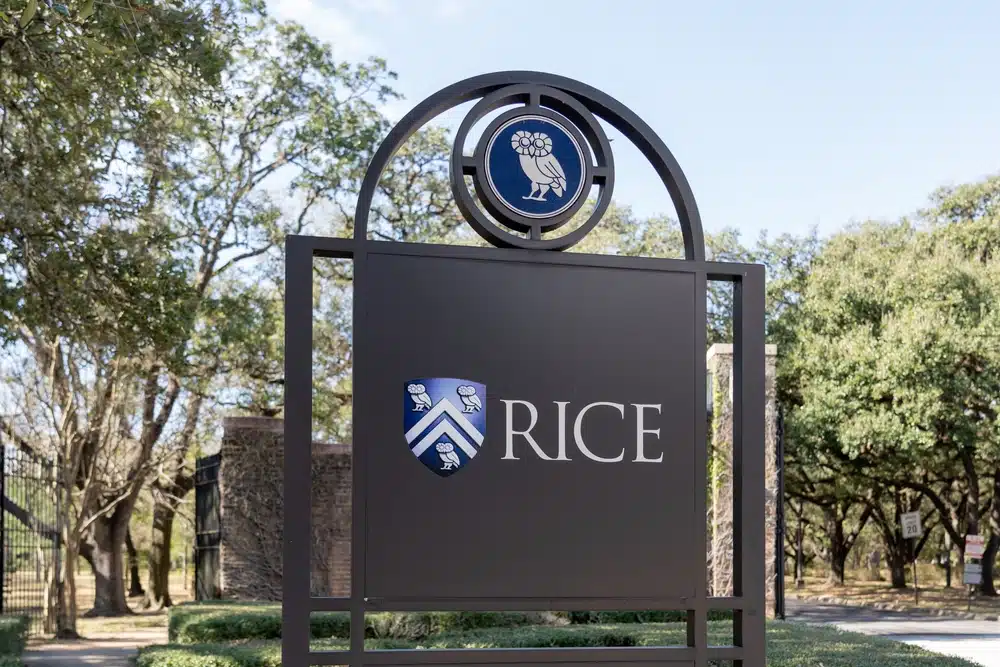Rice vs Boston College: A Comprehensive Analysis
When it comes to deciding which college to attend, there are countless factors to consider. From location and campus to academic programs and student life, the decision can be overwhelming. In this comprehensive analysis, we will compare two prestigious universities: Rice vs Boston College. Let’s dive into each aspect of these universities in great detail to help you make a well-informed decision about which institution is right for you.
Location and Campus
Location and campus are two major factors to consider when choosing a college. Rice University is located in Houston, Texas, while Boston College is located in the suburb of Chestnut Hill, Massachusetts. Both universities boast beautiful campuses with a range of architectural styles. Rice’s campus features both modern and historic buildings, and it’s situated near the Houston Museum District. In contrast, Boston College’s campus has a more traditional feel and features Gothic and Georgian-style buildings. Both universities offer various green spaces and recreational activities, but Boston College’s location provides close access to Boston’s rich cultural scene, while Houston offers more of a Southern urban feel.
Another important aspect to consider when evaluating a college’s location and campus is the availability of resources and facilities. Rice University has state-of-the-art research facilities and laboratories, including the Rice Quantum Institute and the Rice Space Institute. Additionally, Rice has a strong focus on sustainability and has implemented various initiatives to reduce its carbon footprint. On the other hand, Boston College has a renowned library system, with over 2.5 million volumes and access to numerous online databases. The campus also features a variety of dining options, including a food truck festival and a farmer’s market. Overall, both universities offer unique resources and facilities that contribute to their respective campus cultures.
Rice vs Boston College: Academic Programs and Curriculum
When it comes to academic programs and curriculum, both Rice and Boston College offer comprehensive and varied options. Rice offers undergraduate degrees in over 50 disciplines, including engineering, natural sciences, and humanities. Additionally, their graduate programs are nationally ranked. On the other hand, Boston College also offers over 50 undergraduate majors, including business, social sciences, and education. They also have a highly regarded law school and significant graduate programs in many areas. Both universities emphasize undergraduate research and hands-on engagement, offering numerous opportunities such as internships and co-op experiences. While both universities offer strong curriculums, Rice is known for its STEM programs, while Boston College has favored the humanities and social sciences.
Furthermore, both universities have unique academic programs that set them apart from other institutions. Rice University has a renowned School of Architecture that offers undergraduate and graduate degrees in architecture, as well as a program in environmental design. Boston College, on the other hand, has a strong program in theology and religious studies, which is rooted in the Jesuit tradition. The university also offers a unique program in Irish Studies, which explores the history, culture, and literature of Ireland. These specialized programs provide students with the opportunity to delve deeper into their areas of interest and gain a unique perspective on their chosen fields.
Rice vs Boston College: Student Life and Culture
Another important factor to examine is student life and culture. Rice University is known for its laid-back, collaborative culture, where students often work together and support each other in their academic pursuits. The university also offers a strong Greek life system and numerous student-run organizations and clubs. Boston College students also have a strong sense of community, with a tight-knit campus culture, and a significant focus on service and volunteerism. Boston College also offers a robust athletics program, including several Division I teams. Rice university is part of Conference USA, home to NCAA Division 1 athletics programs and the Department of Recreational Sports.
Additionally, both Rice University and Boston College offer a variety of cultural and social events throughout the year. Rice University hosts an annual cultural festival, which celebrates the diversity of the student body and the Houston community. Boston College also hosts a number of events, including concerts, lectures, and performances, which are open to both students and the wider community. These events provide opportunities for students to engage with different cultures and perspectives, and to develop a deeper understanding of the world around them.
Rice vs Boston College: Athletics and Extracurriculars
When it comes to sports and extracurriculars, both universities offer plenty of opportunities for students to get involved. Rice’s athletic program has won numerous national championships in both baseball and basketball and offers a wide range of intramural sports as well. Boston College is also known for its athletics program, with strong men’s and women’s teams in sports such as ice hockey and football. Both universities offer numerous intramural and club sports, as well as numerous extracurricular activities and events.
Additionally, both universities have a variety of student organizations and clubs for students to join. Rice University has over 300 student organizations, ranging from academic and professional groups to cultural and service organizations. Boston College also has a diverse range of student organizations, including clubs focused on community service, the arts, and political activism. These organizations provide students with opportunities to explore their interests, develop leadership skills, and connect with like-minded individuals.
Rice vs Boston College: Admission Requirements and Process
Admission requirements and the application process is crucial when making your decision. Rice and Boston College both require high school transcripts, test scores, essays, and letters of recommendation. Rice’s acceptance rate was 9.8% in 2020, making it highly selective, while Boston College had an acceptance rate of 25.6% in the same year. Both universities look for well-rounded students with a track record of academic achievement and extracurricular involvement.
In addition to the standard admission requirements, Rice University also requires applicants to submit a mid-year report and a final report of their senior year grades. Boston College, on the other hand, offers an optional interview for applicants to showcase their personality and interests beyond their application materials.
It is important to note that both universities have a holistic approach to admissions, meaning they consider factors beyond just grades and test scores. Rice University values diversity and encourages applicants from underrepresented backgrounds to apply. Boston College, on the other hand, places a strong emphasis on community service and looks for applicants who have demonstrated a commitment to serving others.
Rice vs Boston College: Cost of Attendance and Financial Aid Options
When considering college, cost and financial aid opportunities are undoubtedly determining factors. For the 2021-2022 academic year, the cost of tuition, fees, and room and board for Rice University is $64,850. Boston College’s cost of attendance for the same period is slightly higher, at $73,072. At both universities, financial aid is available through merit and need-based scholarships, grants, work-study programs, and federal and private loans. It’s crucial to ensure you are aware of the various options available to you before making a decision.
Career Opportunities and Outcomes
The ultimate goal of attending college is to gain the skills and experience necessary to succeed in your chosen field. Both Rice and Boston College offer comprehensive career services and resources to help students transition into the workforce. Rice’s Center for Career Development aims to connect students with industry leaders and employers worldwide. Boston College’s Career Center offers career exploration and planning, career fairs, and on-campus recruiting, amongst various other services. The average starting salaries for recent graduates at Rice and Boston College are $64,100 and $59,900, respectively.
In addition to career services, both Rice and Boston College offer various opportunities for students to gain practical experience in their fields of study. Rice’s Office of Experiential Learning provides students with internships, research opportunities, and community engagement projects. Boston College’s Career Center also offers internships and co-op programs, as well as opportunities for students to participate in service-learning projects.
Furthermore, both universities have strong alumni networks that can provide valuable connections and mentorship opportunities for students and recent graduates. Rice’s Alumni Association has over 60,000 members worldwide, while Boston College’s Alumni Association has over 180,000 members. These networks can be especially helpful for students who are looking to enter competitive industries or fields.
Faculty and Research Opportunities
Faculty and research opportunities vary significantly at each university. Rice has a student-to-faculty ratio of six to one, and the faculty members are known for their expertise in their chosen fields. The university has several interdisciplinary research centers, including the Rice Quantum Institute and the Rice Institute for Biosciences and Bioengineering. Boston College’s student-to-faculty ratio is 12 to one, and the university has highly regarded research programs, including the Woods College of Advancing Studies and the Center for Social Innovation. Both universities offer opportunities for undergraduate and graduate students to contribute to various research projects.
In addition to the interdisciplinary research centers at Rice, the university also has a strong focus on sustainability and environmental research. The Shell Center for Sustainability and the Smalley-Curl Institute for Nanoscale Science and Technology are just a few examples of the university’s commitment to addressing global challenges through research.
Boston College also offers unique research opportunities, such as the Winston Center for Leadership and Ethics and the Institute for the Liberal Arts. The university’s location in the heart of Boston provides students with access to a wealth of research resources, including world-renowned hospitals and research institutions.
Rice vs Boston College: Alumni Networks and Connections
The alumni network and industry connections that universities provide are essential in finding job opportunities and furthering careers. Rice has a robust alumni network of over 30,000 alumni worldwide, with alumni chapters in numerous major cities. Boston College’s alumni network is equally strong, featuring over 180,000 alumni with a significant emphasis on community outreach and service. Both universities offer exceptional resources and connections to alumni, making it a valuable asset for graduates.
In addition to the alumni networks, both Rice and Boston College offer various career services to their graduates. Rice’s Center for Career Development provides career counseling, job search assistance, and networking events exclusively for Rice alumni. Boston College’s Career Center offers similar services, including career coaching, job fairs, and online resources. These career services are designed to help alumni navigate the job market and advance their careers, further enhancing the value of the alumni networks.
Rice vs Boston College: Diversity and Inclusion Initiatives
When it comes to creating an inclusive and welcoming community, both universities have taken strides to prioritize this goal. Rice has made significant commitments to increase diversity in numerous areas, including increasing the enrollment of underrepresented minorities, hiring faculty and staff, and providing support for students from diverse backgrounds. Boston College also has a strong commitment to diversity and offers resources such as the Thea Bowman AHANA and Intercultural Center, which provides extensive support for students from underrepresented backgrounds.
In addition to these efforts, Rice University has also implemented a mandatory diversity and inclusion training program for all faculty, staff, and students. This program aims to educate individuals on the importance of diversity and inclusion, as well as provide tools and strategies for creating a more inclusive environment.
Boston College has also taken steps to address issues of diversity and inclusion on a global scale. The university has established partnerships with institutions in underrepresented regions, such as Africa and Latin America, to promote cross-cultural exchange and collaboration. These partnerships provide opportunities for students and faculty to engage with diverse perspectives and gain a deeper understanding of global issues.
Student Success Stories at Rice and Boston College
When choosing a university, it’s critical to consider stories of success from current and former students. Rice has a reputation for producing exceptional students, including Nobel laureates, Rhodes scholars, and Pulitzer Prize winners. Boston College has an equally impressive list of successful students, including Pulitzer Prize winners and notable political figures. It’s worth noting to consider that the success of these notable individuals does not necessarily translate into the experience of all students at each respective university.
However, success stories at these universities are not limited to just the academic realm. Many students have also found success in extracurricular activities, such as sports, music, and community service. Rice has a strong athletic program, with many student-athletes going on to compete at the professional level. Boston College has a renowned music program, with many alumni going on to become successful musicians and composers.
Furthermore, both universities offer numerous opportunities for students to engage in community service and make a positive impact on the world. Rice has a Center for Civic Leadership, which provides resources and support for students interested in community service and social justice. Boston College has a robust service-learning program, which integrates community service into academic coursework and allows students to apply their knowledge to real-world issues.
Campus Safety, Security, and Emergency Management
The safety and security of students are undoubtedly a crucial aspect of the college experience. Rice and Boston College take security seriously, offering comprehensive safety measures, including 24/7 security, emergency notification systems, and campus-wide alert systems. Both universities provide several resources and support for students’ wellness and ensure they have access to various programs, including mental health support services.
In addition to the safety measures and resources mentioned above, Rice and Boston College also have emergency management plans in place to ensure the safety of students in the event of a crisis. These plans include protocols for evacuations, sheltering in place, and communication with local authorities.
Furthermore, both universities have campus police departments that work closely with local law enforcement agencies to maintain a safe and secure environment. These departments also offer various safety programs and initiatives, such as self-defense classes and safety escorts, to help students feel more secure on campus.
International Student Experience at Rice vs Boston College
For international students, it’s essential to consider the resources and support that a university offers. Rice and Boston College provide numerous programs and services explicitly designed for international students. Rice has an Office of International Students and Affiliates that provides extensive support and resources for international students, including English language support programs and cross-cultural community engagement initiatives. Boston College also offers exceptional resources and support services, including English language training, academic advising, and mentorship programs.
However, there are some differences in the international student experience at Rice and Boston College. Rice University has a smaller international student population, which can provide a more intimate and personalized experience for international students. On the other hand, Boston College has a larger international student population, which can offer more opportunities for cultural exchange and diversity. Additionally, Boston College is located in a more urban environment, which may be more appealing to some international students who are looking for a bustling city experience. Ultimately, the decision between Rice and Boston College will depend on the individual needs and preferences of each international student.
Rice vs Boston College: Campus Resources for Students
Regardless of your interests, both Rice and Boston College provide an extensive range of resources and support services for their students. Both universities offer robust libraries with extensive collections and electronic resources, and both libraries are open 24/7. Additionally, both universities offer mental health support services, writing centers, and academic counseling services. Moreover, both universities also have extensive volunteer services and community service programs for students.
Furthermore, Rice and Boston College also offer a variety of career services to help students prepare for their future. Both universities have career centers that provide resources such as resume and cover letter reviews, job and internship search assistance, and career fairs. Additionally, both universities offer networking opportunities with alumni and industry professionals, as well as workshops and seminars on career-related topics.
Campus Sustainability Efforts of Rice vs Boston College
Both Rice and Boston College recognize the importance of environmental sustainability and have taken significant steps to promote a more sustainable campus. Rice University has several sustainability initiatives, including reducing energy consumption, recycling programs, and reducing greenhouse gas emissions. Boston College has enacted similar initiatives, including composting and water use reduction, and has received recognition for its sustainability efforts, including a gold rating from the Sustainable Endowment Institute.
However, there are some differences in the sustainability efforts of Rice and Boston College. Rice University has implemented a bike-sharing program, which allows students to rent bikes for free, encouraging alternative transportation methods and reducing carbon emissions. On the other hand, Boston College has focused on sustainable food practices, such as sourcing local and organic produce for their dining halls and reducing food waste through composting. Both universities have made significant strides towards sustainability, but their approaches differ based on their unique campus needs and priorities.
Student Organizations, Clubs, Societies, and Groups on Campus
Finally, extra-curricular activities are a crucial aspect of the college experience. Rice and Boston College both offer a wide range of organizations and clubs for students to get involved with. Rice has over 300 student organizations and clubs for various interests, including cultural groups, religious organizations, and athletic teams. Boston College also offers a diverse range of extracurricular activities, including clubs, societies, and intramural sports teams for students to participate in.
As we’ve seen, both Rice and Boston College offer many benefits and opportunities for their students. Each university has its strengths and weaknesses, and your decision will ultimately depend on your priorities and goals. It’s crucial to examine each factor in detail and determine which university aligns with your needs and aspirations. We hope this comprehensive analysis has provided you with the necessary insights to make an informed decision.
Moreover, both universities have a strong emphasis on community service and volunteerism. Rice has a Center for Civic Leadership that offers various programs and initiatives for students to engage in community service and social justice work. Boston College also has a robust service-learning program that integrates community service into academic coursework and provides opportunities for students to participate in service trips and volunteer projects.
Additionally, both universities have active student government associations that provide opportunities for students to develop leadership skills and advocate for student interests. Rice has a Student Association that represents the student body and oversees various student-led initiatives and events. Boston College has a Student Government Association that serves as the official voice of the undergraduate student body and works to improve the student experience on campus.
How AdmissionSight Can Help You With College Admissions
AdmissionSight is a college consulting firm that provides personalized assistance to students throughout the college admissions process. Here are some ways that AdmissionSight can help you:
Admissions strategy: AdmissionSight can help you develop a strategic plan for your college application process. Our professional consultants can assist with identifying schools that are a good fit for your academic, extracurricular, and personal goals and help you plan and prioritize your application strategy.
Application review: AdmissionSight can review your application and provide feedback on how to improve it. We can offer suggestions on making your application stand out and highlighting your strengths and unique qualities.
Essay coaching: AdmissionSight can help you craft compelling essays that showcase your personality, goals, and achievements. We can guide you through the essay writing process and provide feedback on your drafts to help you refine your writing.
Interview preparation: AdmissionSight can provide interview coaching to help you feel confident and prepared for college interviews. Our experts can offer tips on how to present yourself professionally and how to answer common interview questions.
Extracurricular planning: AdmissionSight can help you plan and develop your extracurricular activities to make them more impactful and meaningful. We can suggest activities that align with your interests and goals and provide guidance on demonstrating your leadership and initiative.
Overall, AdmissionSight can provide valuable guidance and support throughout the college admissions process to help you maximize your chances of getting accepted into the college of your choice.
With a high success rate of over 75%, we have built a strong network in the past decade. Book an initial consultation today, free of charge!










































